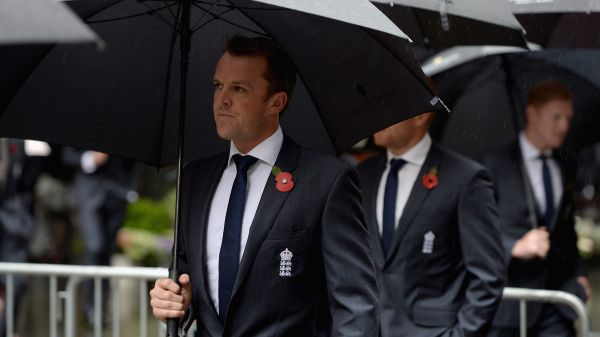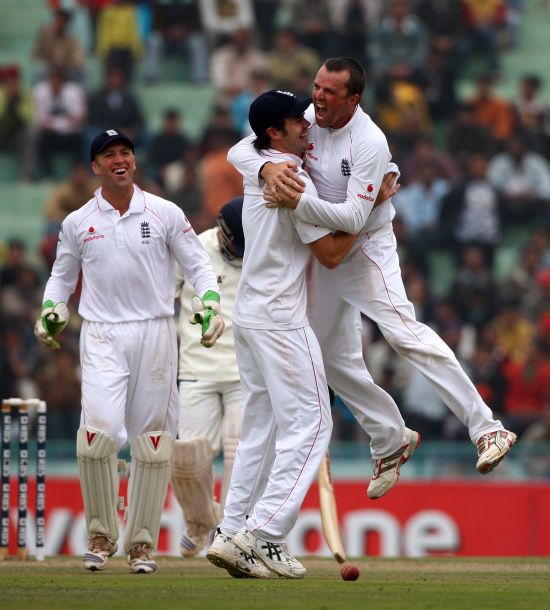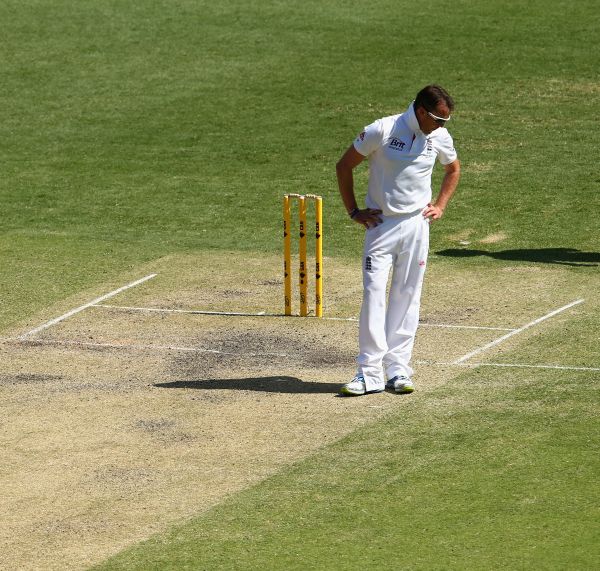 | « Back to article | Print this article |
Factbox: Former England spin bowler Graeme Swann
England spinner Graeme Swann announced his retirement from international and first-class cricket on Sunday midway through the five-match Ashes series, which Australia hold an unassailable 3-0 lead in.
Born: March 24, 1979 in Northampton
Right-arm off-spinner
Tests record: 60 matches (debut against India in Chennai, 2008), 255 wickets, average 29.96. Best innings bowling: 6-65 (v Pakistan, Birmingham, 2010). Best match bowling: 10-132 (v New Zealand, Leeds, 2013)
First class record: 252 matches (Northamptonshire, Nottinghamshire), 739 wickets, average 32.12.
England debut then long snub
Swann made a harrowing debut as a 19-year-old for Northamptonshire against Surrey in 1998 finishing with figures of 1-91 from his 13 overs.
After a promising second season, however, he was called up for England's tour of South Africa the following year and made his international debut in a one-day match in Bloemfontein against South Africa in 2000.
Despite his promise, his chirpy attitude and a string of off-field misdemeanours annoyed team mates and officials and he never played another match under England coach Duncan Fletcher.
Test debut
With Fletcher's reign over, Swann finally broke into the Test team in 2008 and made an immediate impression, dismissing Indian opener Gautam Gambhir and number three Rahul Dravid in his first over before finishing the match with four wickets.
Taking wickets in the first over of a spell became a hallmark of Swann's career.
England's number one spinner
Once Monty Panesar's understudy, Swann displaced the Luton-born left-armer for England's tour of West Indies and marked the occasion with his first five-wicket innings haul in the Test at St. John's.
He burnished his reputation as match-winner in a successful Ashes campaign in 2009, in which he captured four wickets in the second innings of the series-deciding fifth Test at The Oval to seal the coveted urn for England.
He proved to be Australia's Ashes nemesis again in the 2010-11 series Down Under by guiding the hosts to a morale-boosting victory with a five-wicket haul in the second Test in Adelaide.
His bowling partnerships with paceman James Anderson were key to England's first Ashes win Down Under in a quarter of a century.
South Africa slump and India revival
Having helped captain Andrew Strauss's England reach the pinnacle of Test cricket in 2011, Swann's form dipped as the team were belted by South Africa at home to relinquish the world number one ranking the following year.
Dropped for only the second time in his career, Swann hit back with 20 wickets in England's breakthrough series win in India in 2012, finishing with the best bowling figures from either side.
Surgery on Swann's troublesome right elbow excluded him from the New Zealand tour earlier this year, but he returned in time for the home series where he posted his best match bowling figures (10-132) in the decisive second Test in Leeds.
Ashes to Ashes
Australia's tormentor returned to punish the tourists in the first of back-to-back Ashes in 2013, finishing the 3-0 series win with 26 wickets to top the bowling statistics from both sides.
More of the same was expected from the 34-year-old Northampton man in the second series Down Under, but Swann was flayed by Australia's batsman on their home pitches from the start.
Finishing with 2-215 after the first Test in Brisbane, Swann went for 2-182 in the second match in Adelaide as Michael Clarke's side, previously timid and tepid against the spinner, turned the tables by attacking him with abandon.
Swann took 3-163 in his final match at the WACA in Perth, but was powerless to prevent England from losing their third straight Test and relinquishing the Ashes two matches early.
Days later, Swann's miserable campaign was further blighted when he was embroiled in controversy for a crude remark about the Perth loss on his brother's Facebook page, prompting a public apology.
On Sunday, Swann surprised by announcing his retirement from international and first-class cricket midway through the Ashes, saying his body was no longer up to the rigours of the long forms of the game and that it would be "selfish" for him to continue when England needed to rebuild.





